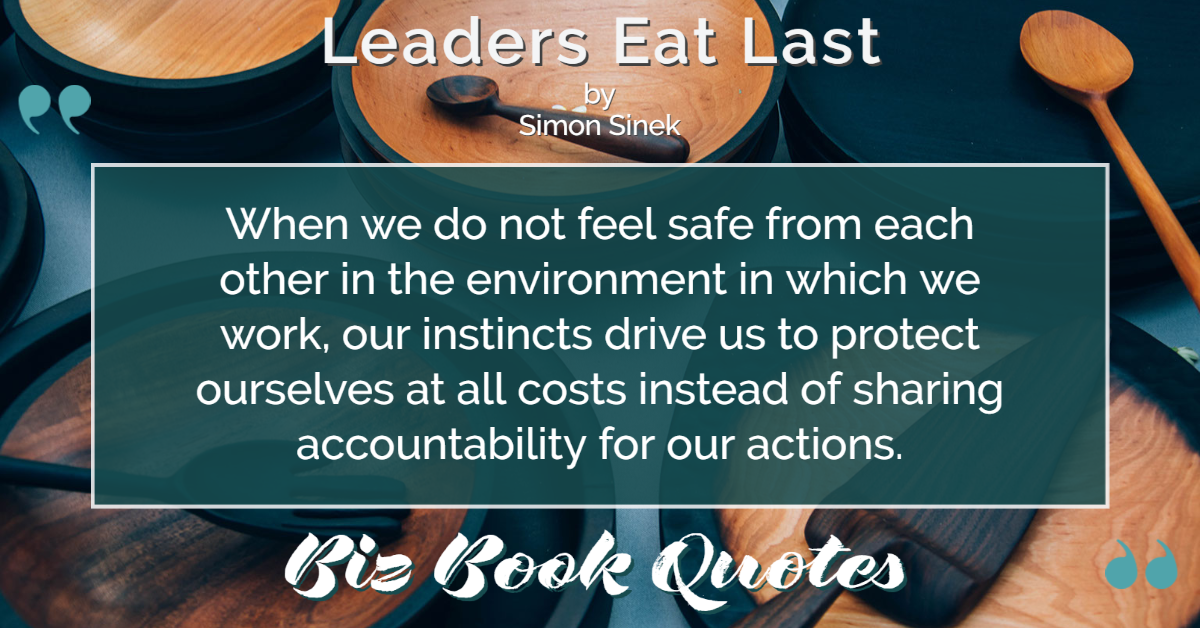 |
When we do not feel safe from each other in the environment in which we work, our instincts drive us to protect ourselves at all costs instead of sharing accountability for our actions.
|
130 |
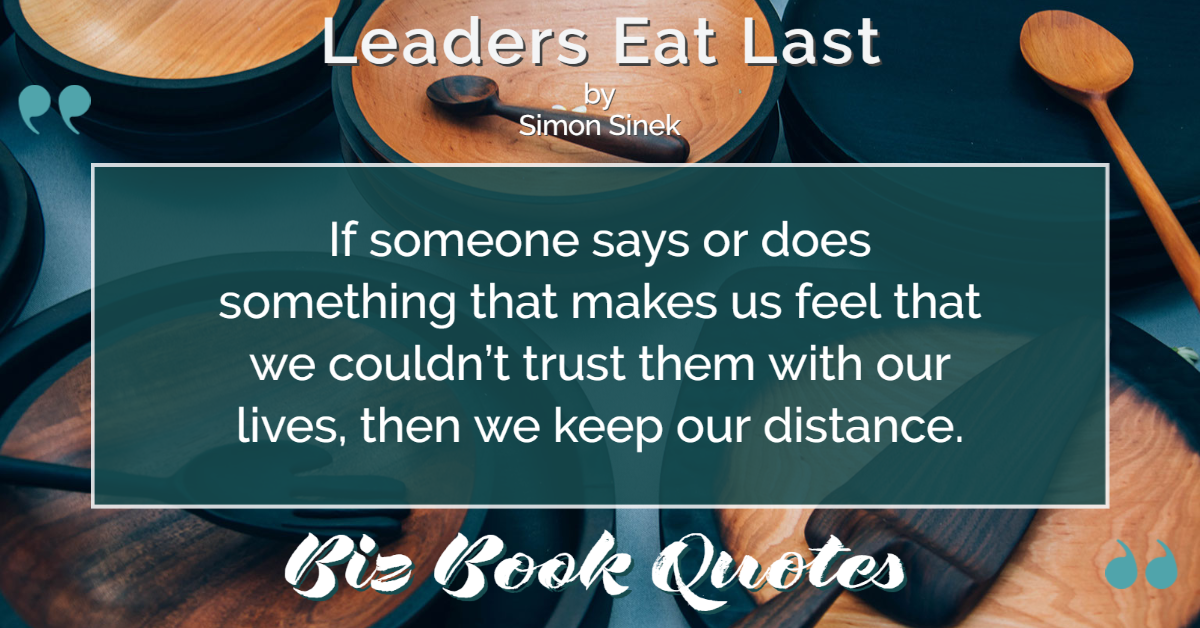 |
If someone says or does something that makes us feel that we couldn’t trust them with our lives, then we keep our distance.
|
131 |
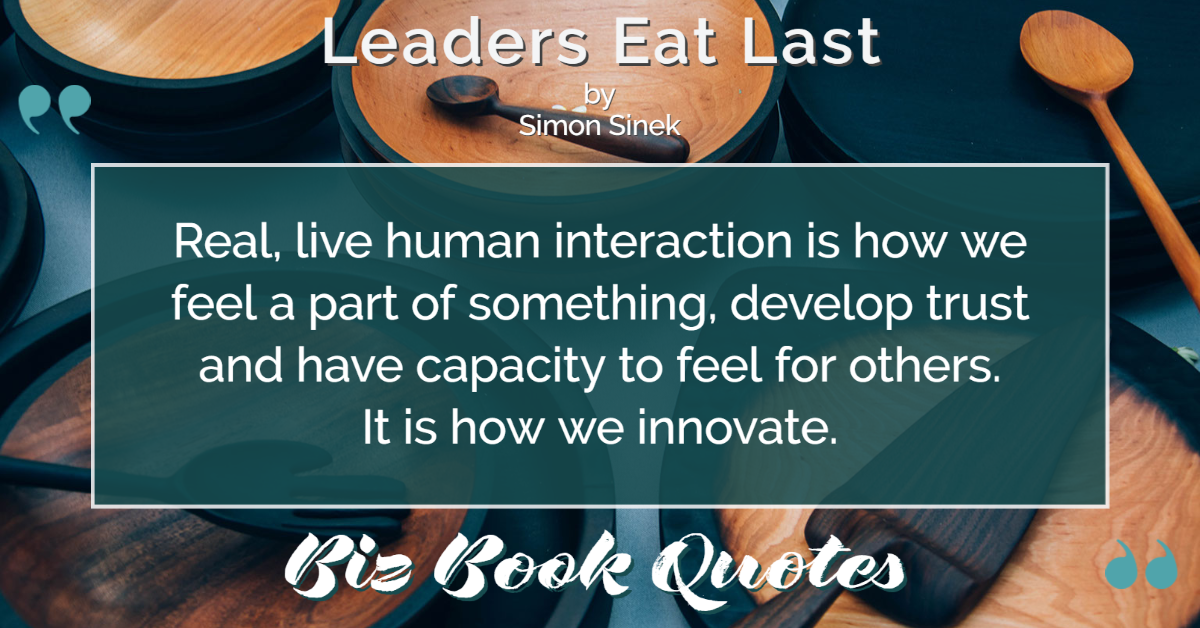 |
Real, live human interaction is how we feel a part of something, develop trust and have capacity to feel for others. It is how we innovate.
|
141 |
 |
Given our obsessive need to feel safe among those in our tribe – our communities and companies – we inherently put a premium value on those who give us their time and energy.
|
149 |
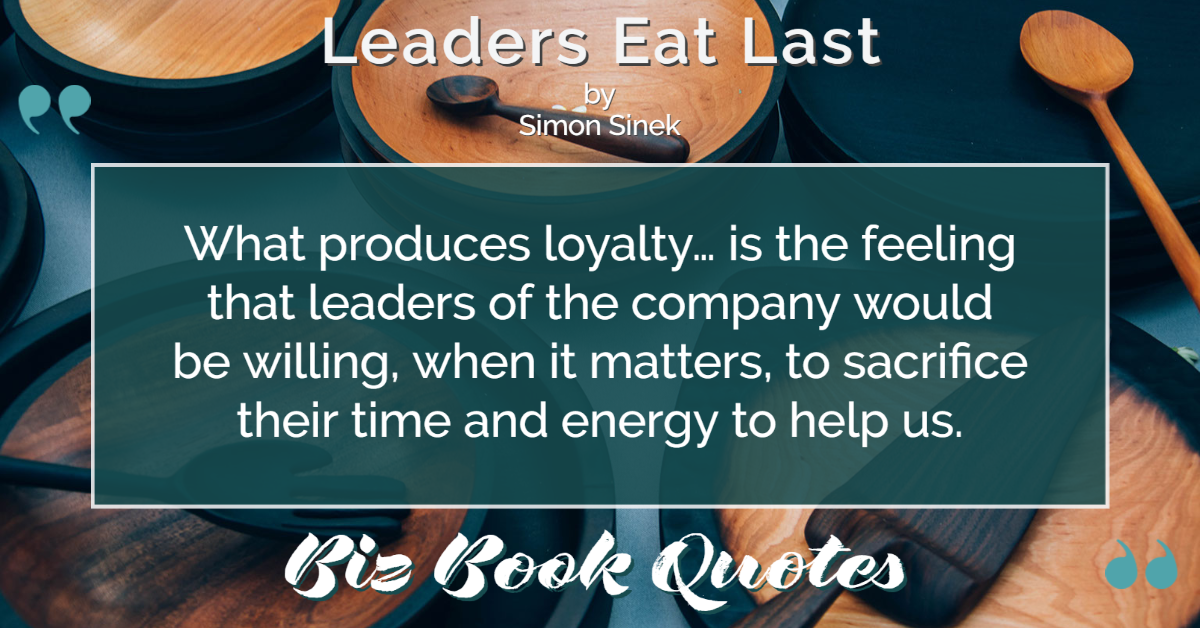 |
What produces loyalty… is the feeling that leaders of the company would be willing, when it matters, to sacrifice their time and energy to help us.
|
150 |
 |
…when empathy is lacking, aggression, fear and other destructive feelings and actions dominate.
|
164 |
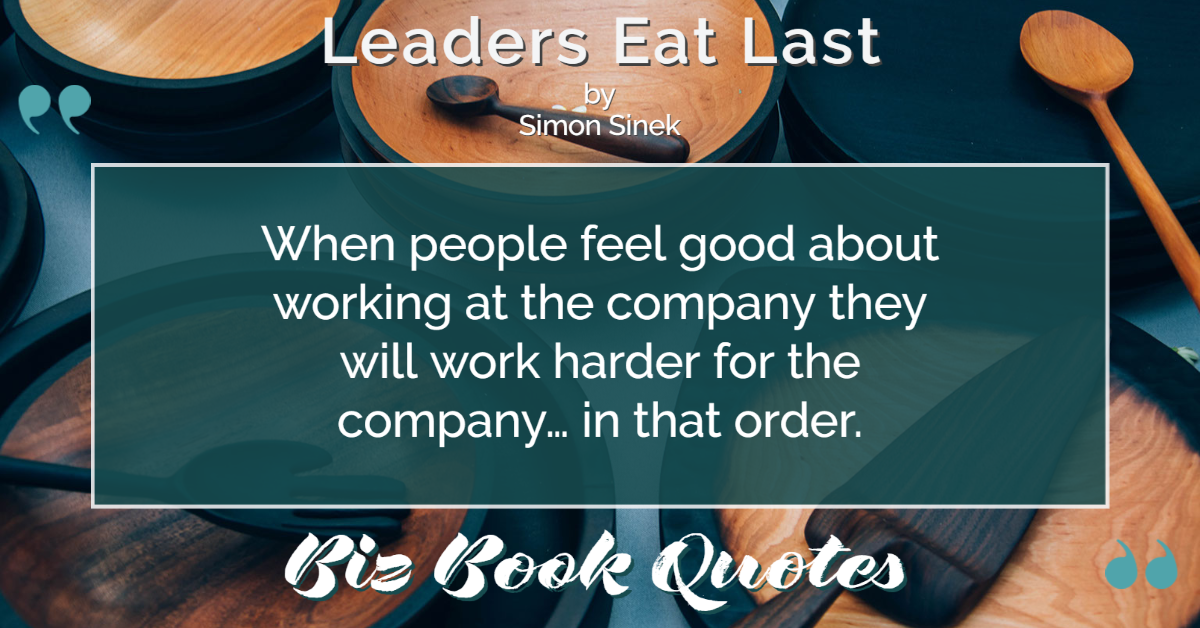 |
When people feel good about working at the company they will work harder for the company… in that order.
|
221 |
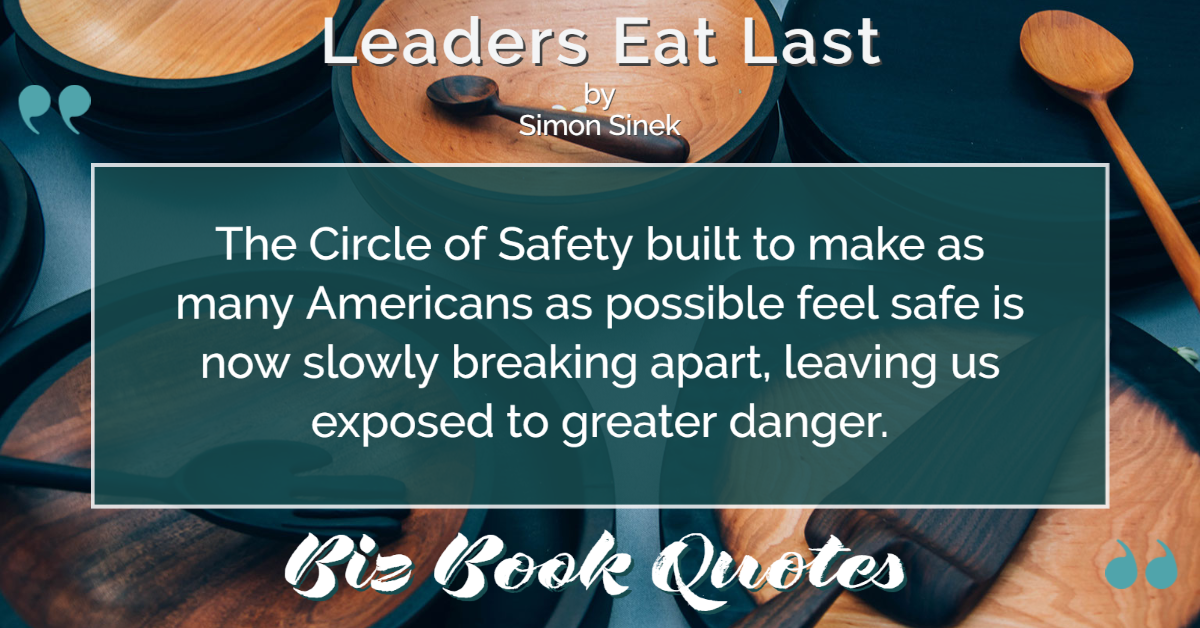 |
The Circle of Safety built to make as many Americans as possible feel safe is now slowly breaking apart, leaving us exposed to greater danger.
|
242 |
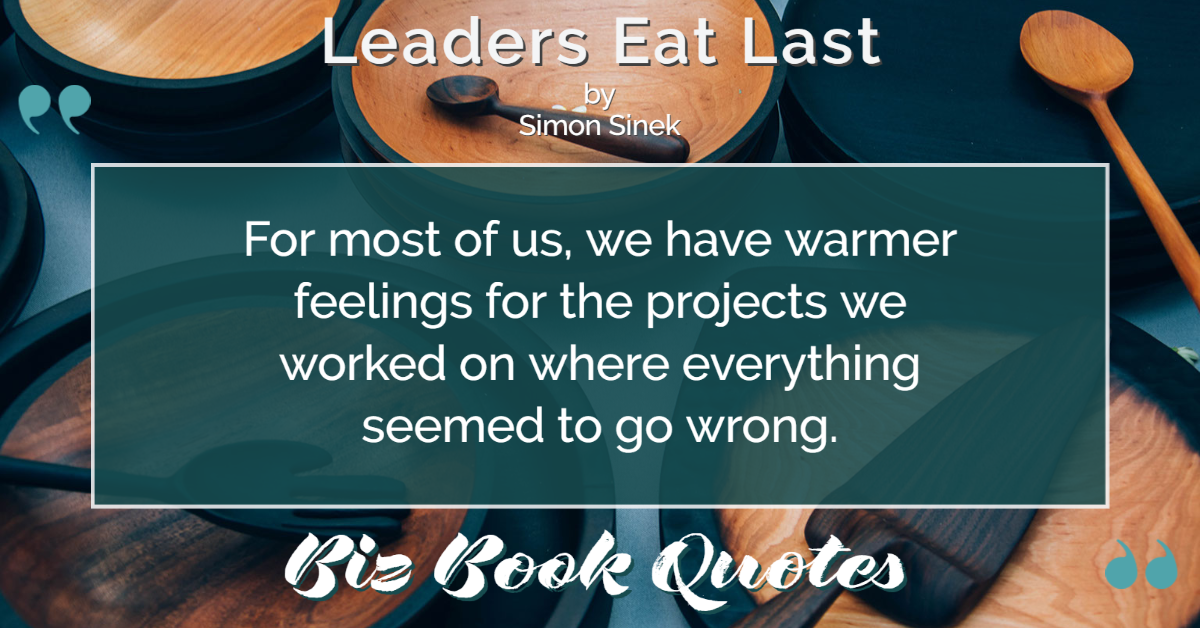 |
For most of us, we have warmer feelings for the projects we worked on where everything seemed to go wrong.
|
279 |
 |
This feeling of belonging, of shared values and a deep sense of empathy, dramatically enhances trust, cooperation and problem solving.
|
24 |